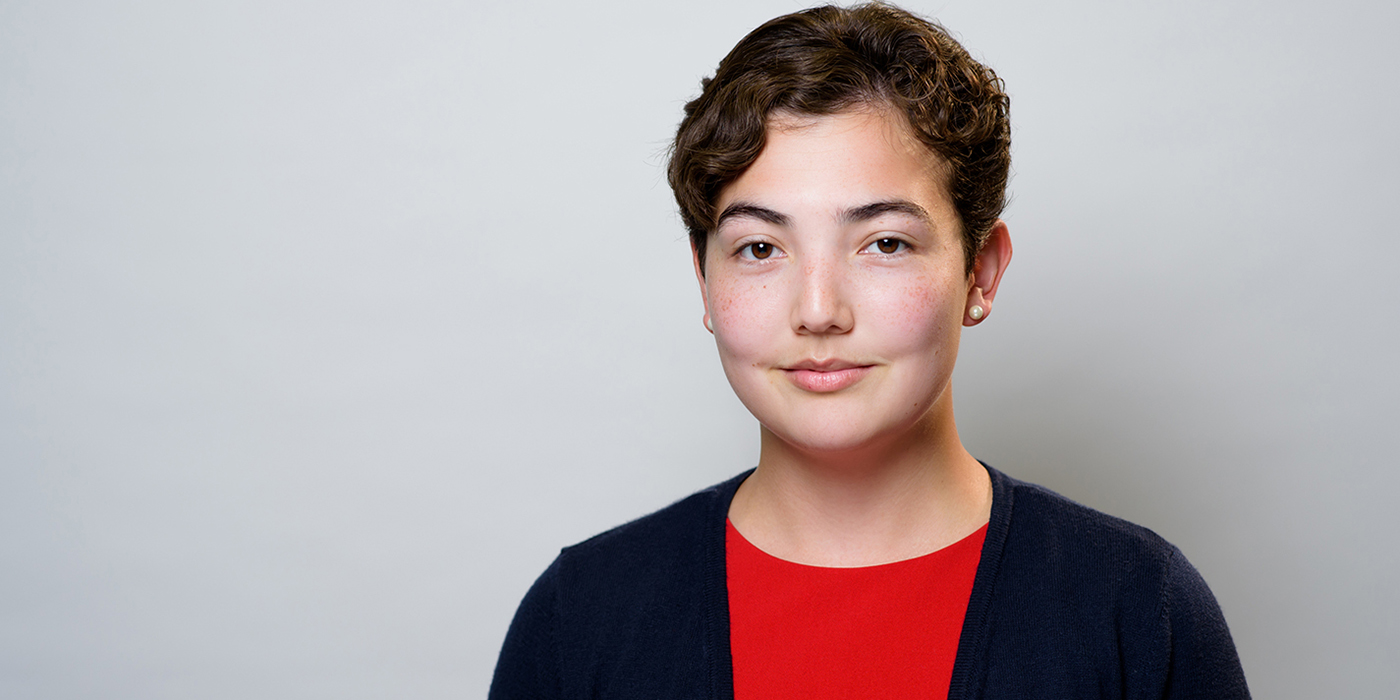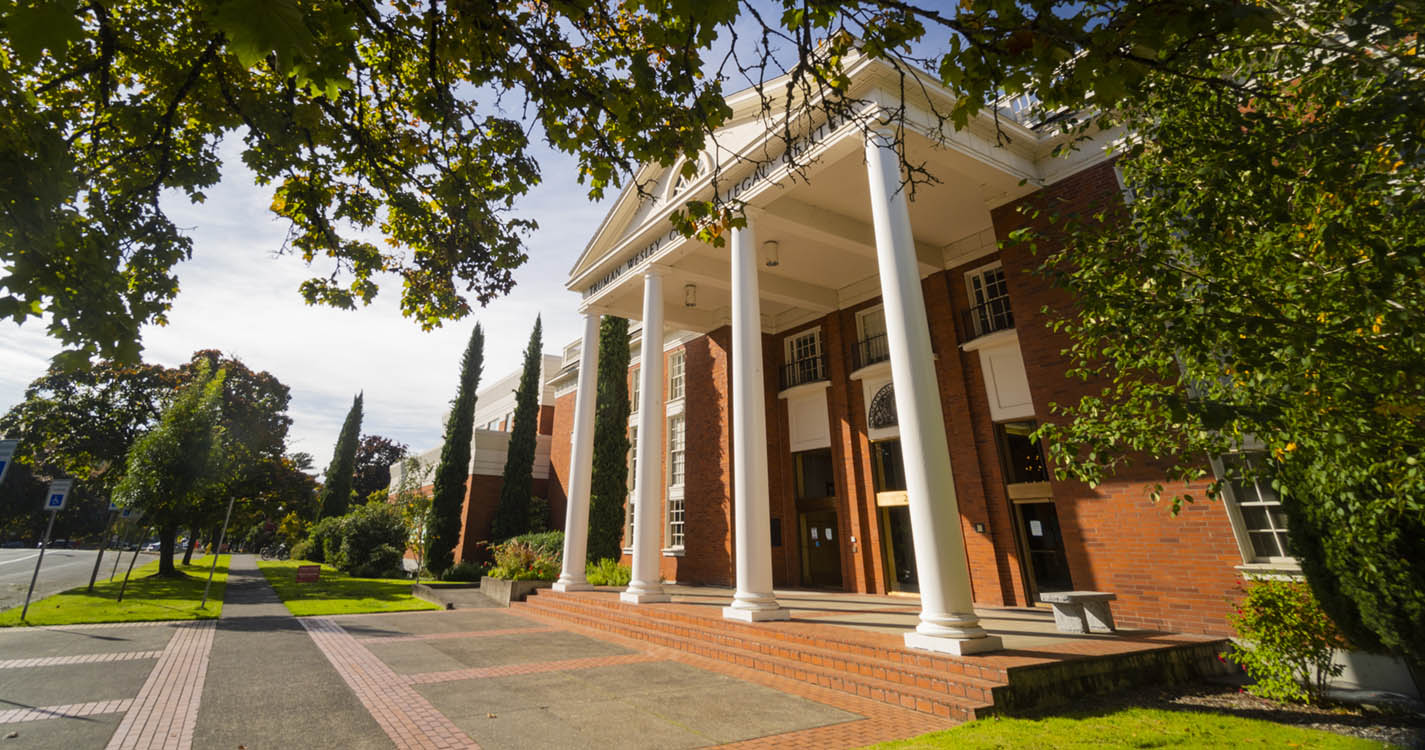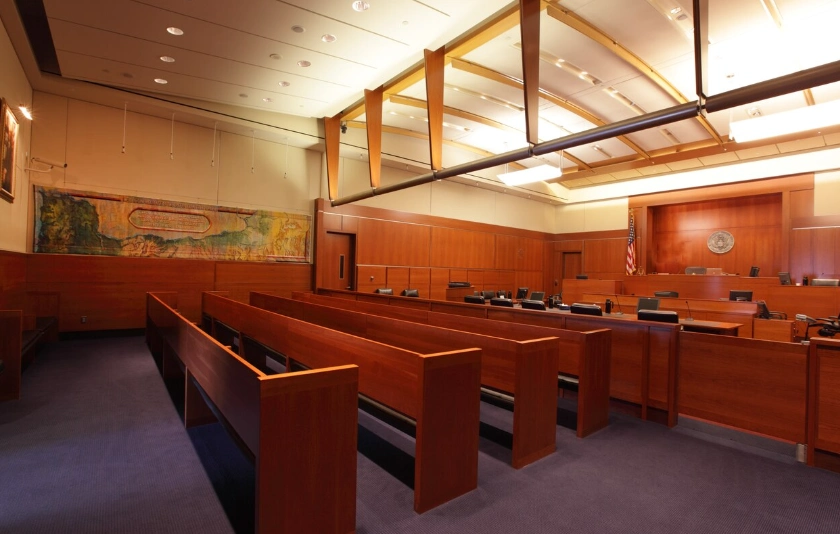When Megan Mizuta JD’21 sat at a table surrounded by Oregon Supreme Court justices at Willamette University’s College of Law, she knew she’d found the right place.
The state’s highest court was holding oral arguments on campus, part of a longstanding tradition for first-year students, and Mizuta happened to be there for her first campus visit. She met justices Adrienne Nelson and Meagan A. Flynn at a luncheon, and their talk went so well, she could see herself happy at the school, she said.
The experience also symbolized a larger turning point: Mizuta had no intention of becoming a lawyer, but after exploring a couple different career paths, she’s now on track to be a judicial clerk for Judge Steven Powers JD’01 at the Oregon Court of Appeals.
Journey to a new career
As an undergraduate English major, Mizuta appreciated the arts, history and scholarship, so a job at a museum or as an archivist made sense. She explored both.
During college in Caldwell, Idaho, she spent several years volunteering for its archive department, processing hundreds of drawings by 19th-century artist Marie Irvin, and also conducted research on American writer Susan Fenimore Cooper for an English professor. She then moved to Boston for a library and information science degree at Simmons University, one of the top programs in the country, and landed an internship next door at the Museum of Fine Arts Boston, assisting the registrar in a job she describes as a cross between “a circulation librarian and a travel agent.”
Although her internship and a job later in Utah revealed how dynamic museums could be, Mizuta realized if she wanted to stay in the field, she’d have to move from city to city to advance. She also felt the positions she’d held lacked one thing she needed: creativity.
“As a museum registrar, you’re not doing any of the writing or analytical thinking you get to do in law,” she said. “And even though librarians get to do a lot of research, they don’t necessarily get to craft a final written product the way that attorneys do.”
Maintaining a good quality of life, minimizing debt and feeling comfortable at a law school was important to her. She didn’t want to attend “a school full of sharks,” and Willamette fit the bill — her classmates were happy to see others succeed, and the community was incredibly supportive, she said.
“I feel I could ask most practitioners, ‘Will you take me out to lunch and tell me what you do?’ and they just would,” she said.
Mizuta learned from the best minds in the field — current and former Supreme Court justices such as Chris Garrett, Jack Landau, and Paul De Muniz taught her classes — and she joined a number of organizations.
She edited for the Willamette Law Review, assisted the law admission office and represented the law school for Willamette’s alumni association. She was a member of the Multicultural Law Student Association and the Asian Pacific American Law Student Association.
Off campus, she was a law student representative for the Oregon Asian Pacific American Bar Association, a representative to the Young Lawyers Section of the Multnomah Bar Association and an upper division student-mentor for Opportunities for Law In Oregon, a diversity and inclusion program through the Oregon State Bar.
Mentorship also proved particularly fruitful for her. After a law career event, Mizuta became better acquainted with Nani Apo ’13, who unofficially adopted Mizuta as her mentee. Apo later became Mizuta’s supervisor during her second-year clerkship in the appellate division at the Oregon Department of Justice in Salem. The clerkship was helpful, too — attorneys offered Mizuta line-by-line feedback on the respondents’ briefs she wrote, and their generosity improved her writing and helped prepare her for the judicial clerkship, she said.
Next steps
Last June, Mizuta began a certified law clerk position in the U.S. Attorney’s Office in Portland. Each week, she conducted research, wrote legal memos and helped manage the petty offense docket inside the federal courthouse, which became a focal point of chaos and violence during months-long demonstrations.
Most of the office had been teleworking since March, but the same infrastructure wasn’t set up for law clerks, who had to work inside the building. They were occasionally advised to leave the premises “just in case” something would happen, she said. One day, the air in the lobby was so thick with tear gas, the whole building had to close. Overall, though, she felt safe.
“It was surreal,” she said. “Most of the activity happened at night, but we’d see the debris every morning and walk through the fence and concrete barriers and boarded-up lobby. It was all happening below us. But I’d take the elevator up, get to my office, which didn’t have a window, and have to refocus on the project at hand. There was a lot of work to do.”
Now she’s looking toward her future. Mizuta’s clerkships left her feeling confident about a career in public service, and the meaningful mentorship she both received and provided for other students has inspired her to return to the law school as an attorney-mentor, she said.
The college has given her a wealth of opportunities to learn and to connect — ranging from mock interviews to classes on Oregon law taught by Oregon justices — and she’s excited to start applying her knowledge when she starts working with Judge Powers for her clerkship, which begins in mid-August.
“I think Judge Powers is deeply committed to getting to the right answer and to being a good person along the way, and I can’t think of a better way to begin my legal career than to spend two years working with someone who has so much professional and personal integrity,” she said.




